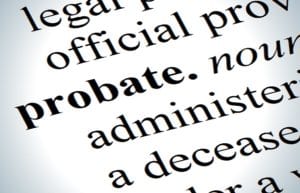 Probate is simply the administration of an estate through the court system after someone's death. Nearly every estate is required to pass through probate before heirs can receive their inheritance. While the purpose of this process is to transfer the estate in an organized fashion, there are three major disadvantages to probate, which typically lead individuals to try to avoid the process altogether. Whether or not probate should be avoided is a decision each person should make when considering their estate planning. Reno estate planning lawyers can help you determine whether avoiding probate is the best option for you.
Probate is simply the administration of an estate through the court system after someone's death. Nearly every estate is required to pass through probate before heirs can receive their inheritance. While the purpose of this process is to transfer the estate in an organized fashion, there are three major disadvantages to probate, which typically lead individuals to try to avoid the process altogether. Whether or not probate should be avoided is a decision each person should make when considering their estate planning. Reno estate planning lawyers can help you determine whether avoiding probate is the best option for you.
Contrary to what many clients believe, the requirement of probate applies regardless of whether or not you have a valid Will. If you have a Will, that document will determine how your estate is transferred during the probate process. Without a Will, your assets must still go through probate based on the laws in the state where you live.
The two primary steps required in the probate process involve paying your debts and transferring your assets to your beneficiaries. Although some of the specific may be different, from one state to the next, the same basic stages are followed:
If you have a Will which designates your personal representative, that person will be in charge of your estate. If you do not have a Will, then the court will decide who will be your executor/executrix. This is also the case if the person you selected is unable to serve and you did not specify an alternative.
One of the primary motivations for avoiding probate is the desire to maintain privacy regarding your estate. The probate process is a completely public proceeding, which means that anyone who is interested will be able to attend probate hearings and access your probate records. This means that the terms of your will, the nature of your assets, and the identity of your beneficiaries and creditors are all open to the public. For many people, this lack of privacy is a major disadvantage of probate.
Based on how complicated your estate property and other assets are, the cost of probate administration can very high. Court fees, accounting and appraisal fees, legal fees, and fees for your personal representative can all be expected. If your estate includes a business, then there are likely to be business valuation fees, too. There are many estate planning strategies to limit many of these expenses, and you may be able to avoid the cost of probate altogether.
The entire probate process, from beginning to end, can take months or even years to complete. Although, if you have a Will the process may be a bit quicker, there are still many transactions to be completed. With a Will, the court will not need to determine the administrator and heirs or beneficiaries. However, the accounting of the property will still be required. Also, real estate will need to be appraised so its value can be determined. Creditors need to be notified. All of these necessary steps require a certain amount of time.
Probate is not always inevitable, depending on the nature of your estate and the strength of your estate plan. In fact, it is not difficult to avoid the probate process altogether. There are many different estate planning tools you can use to ensure that your property passes to your heirs, while avoiding the probate process. However, you should consult with one of our lawyers in order to make sure you utilize the tools most suitable for you. If you have the appropriate estate planning tools in place, the probate process can be avoided.
Some examples of estate planning tools that can be used include revocable living trusts, gifts, joint ownership of property, and pay-on-death accounts. These estate planning tools are meant just for this purpose.
If you have questions regarding probate administration, or any other estate planning needs, please contact Anderson, Dorn & Rader, Ltd., either online or by calling us at (775) 823-9455.




